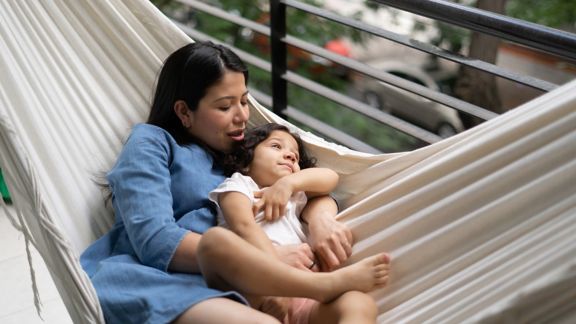Massachusetts Playful Learning Institute P-3 Evaluation

Problem
Playful instruction can be a powerful learning tool, but teachers lack training to provide it.
While play provides a developmentally appropriate and meaningful way for children to learn, children have infrequent opportunities to participate in playful learning. Schools infrequently offer children opportunities for play through classroom instruction, confining play to recess or unstructured free time rather than intentionally incorporating play as an instructional strategy in the academic curriculum. Play can foster critical thinking, co-constructed learning environments, problem-solving skills, and positive academic attitudes, all crucially important during this critical period of brain development. Teachers need support to offer intentional playful learning opportunities as a high-quality early education practice.
Solution
We collaboratively designed a Playful Learning Institute implementation evaluation.
NORC is working with partners to learn about Playful Learning Institute (PLI) implementation, including existing theories of change, implementation plans, participant beliefs and practices, and goals for changing student and practitioner outcomes. NORC and the Center on the Ecology of Early Development (CEED) have worked with the Massachusetts Department of Elementary and Secondary Education (DESE) to design an implementation evaluation of the PLI. The research team collected data from teachers, administrators, and staff with a baseline survey examining beliefs and practices regarding playful learning prior to implementation of the PLI. The team will continue to collect data through focus groups, classroom observations, a post-survey, and a review of coaching logs to support continuous improvement and evaluate the components of the PLI.
NORC/CEED’s approach involves quantitative and qualitative data collection and analysis; collaboration with DESE, participating schools, and other playful learning partners; and an evolving design and evaluation approach.
Result
Final results are forthcoming, and initial findings provide implementation insights.
Initial findings indicate enthusiasm for playful learning. On the baseline survey most teachers, other educational staff, and leaders reported believing that playful learning would make it at least “somewhat easier” to understand students’ strengths and unique needs, keep students on task, and build positive skills, as well as support classroom management and build trusting relationships among students.
Teachers and staff also anticipated needing support to successfully plan lessons incorporating playful learning practices, including support for students with disabilities. The data offered insights into educators’ mindsets and perceived barriers to implementing playful learning.
Future data collection will focus on coaches’, teachers’, and administrators’ experiences throughout the Playful Learning Institute implementation.
Related Tags
Project Leads
-
Molly Gordon
Senior Research ScientistSenior Advisor







